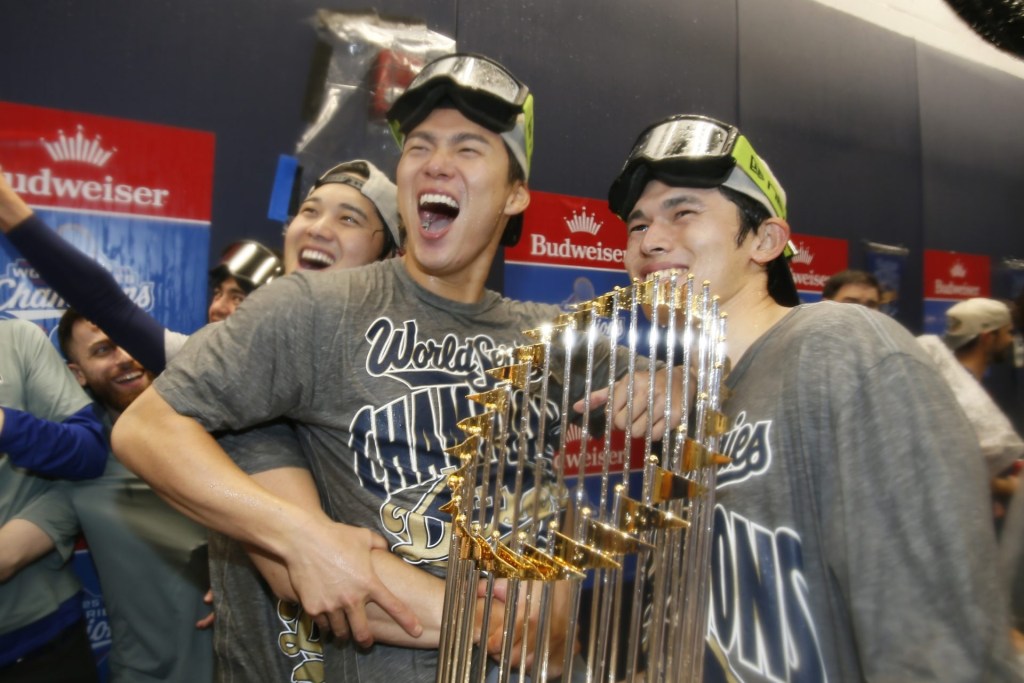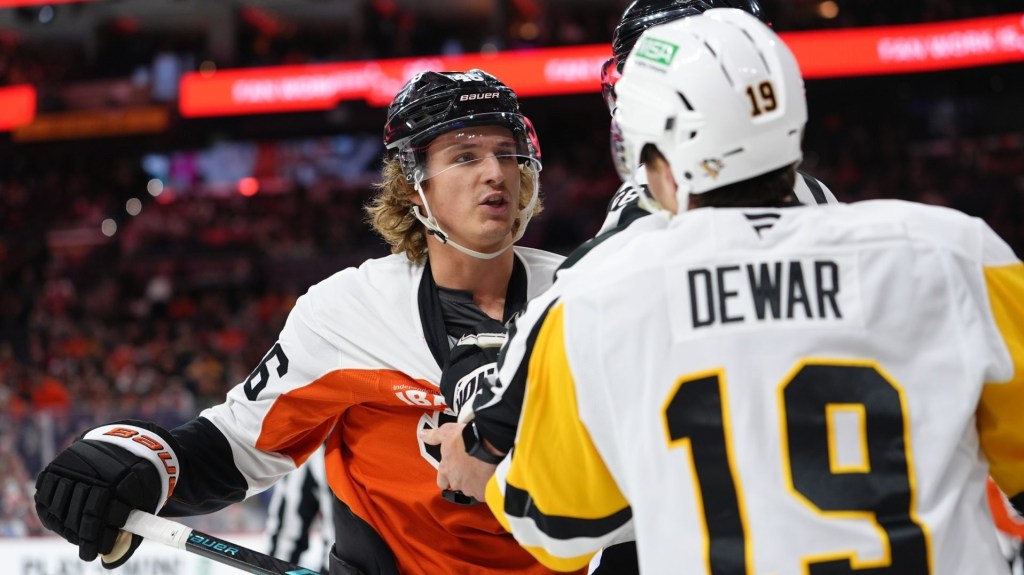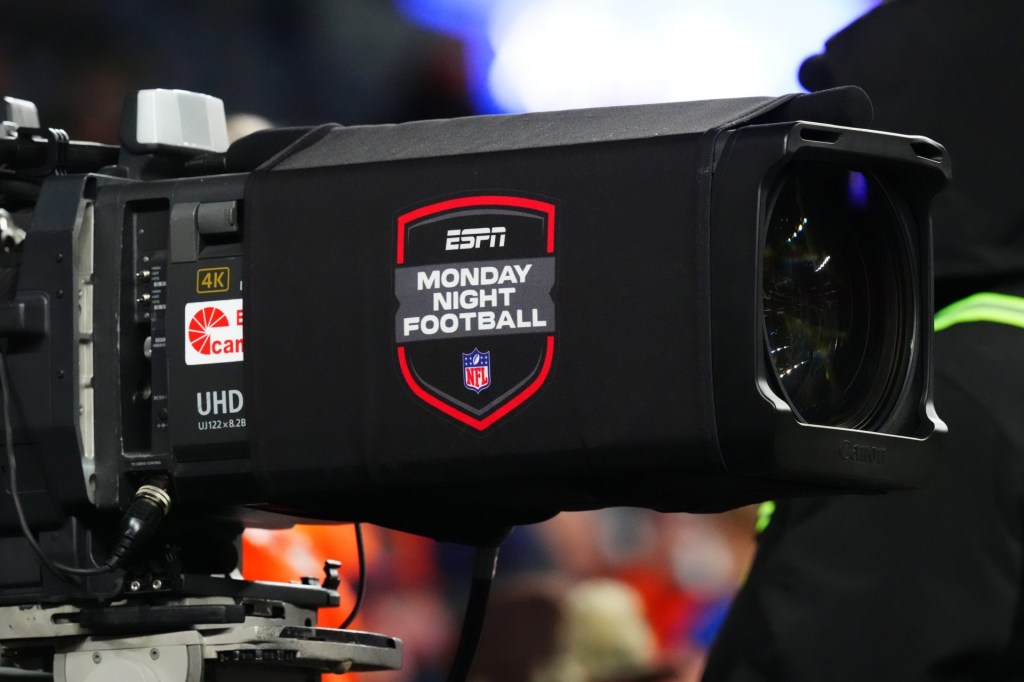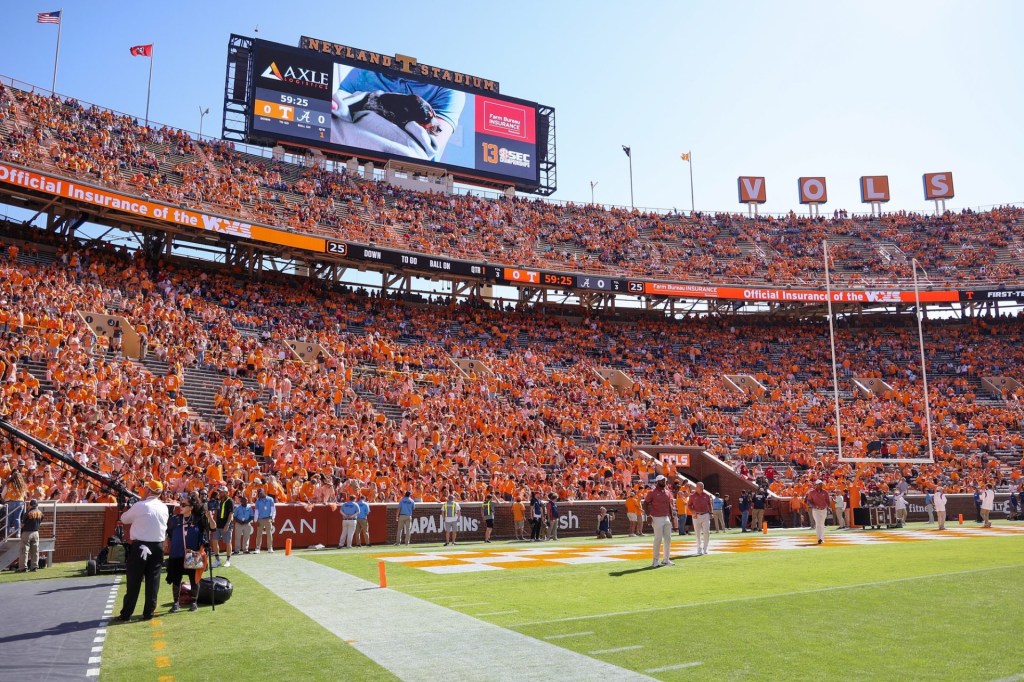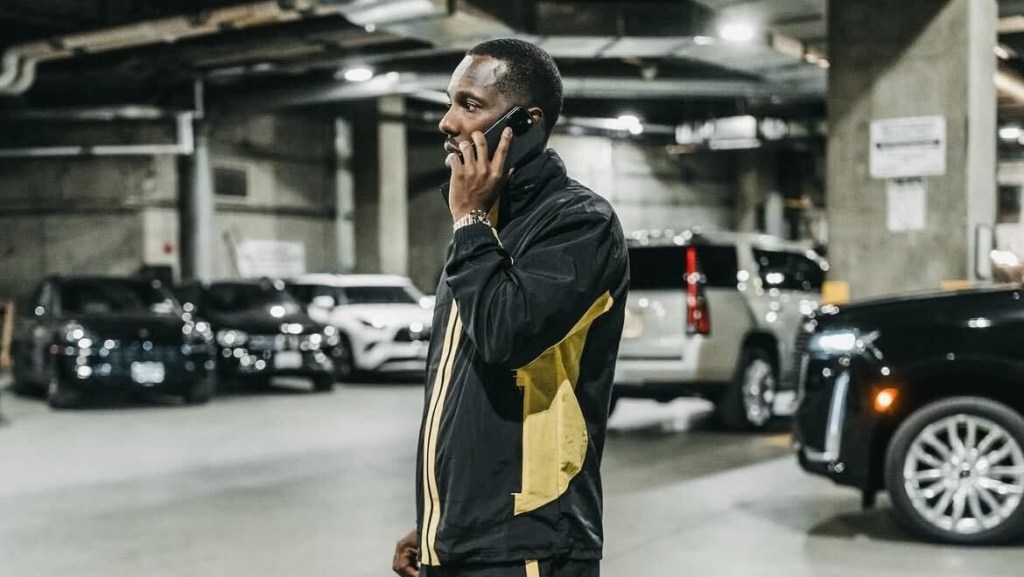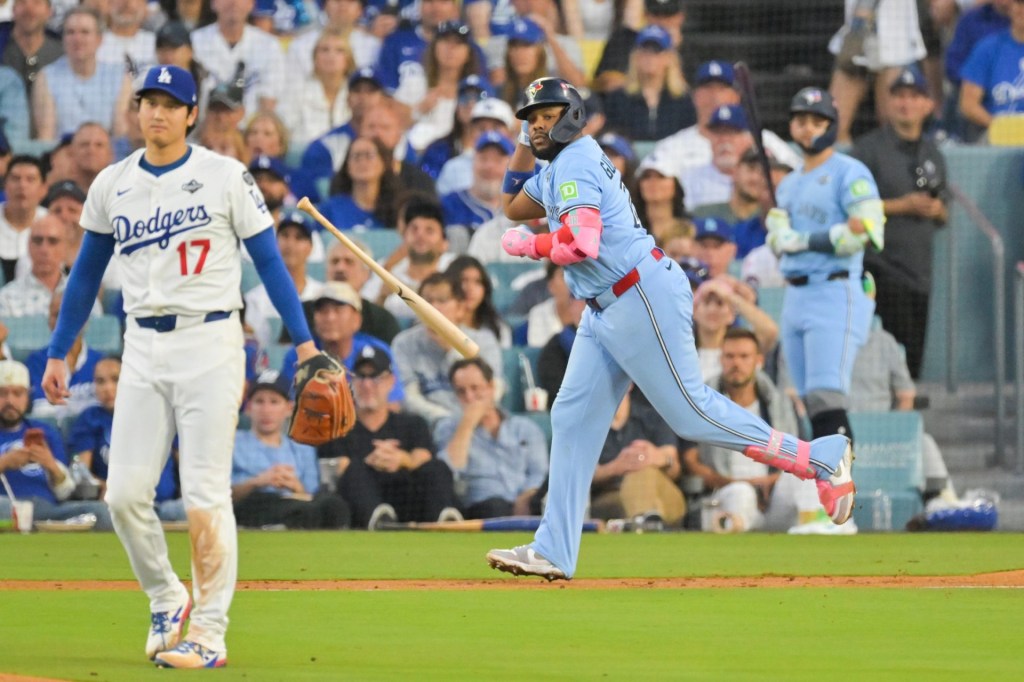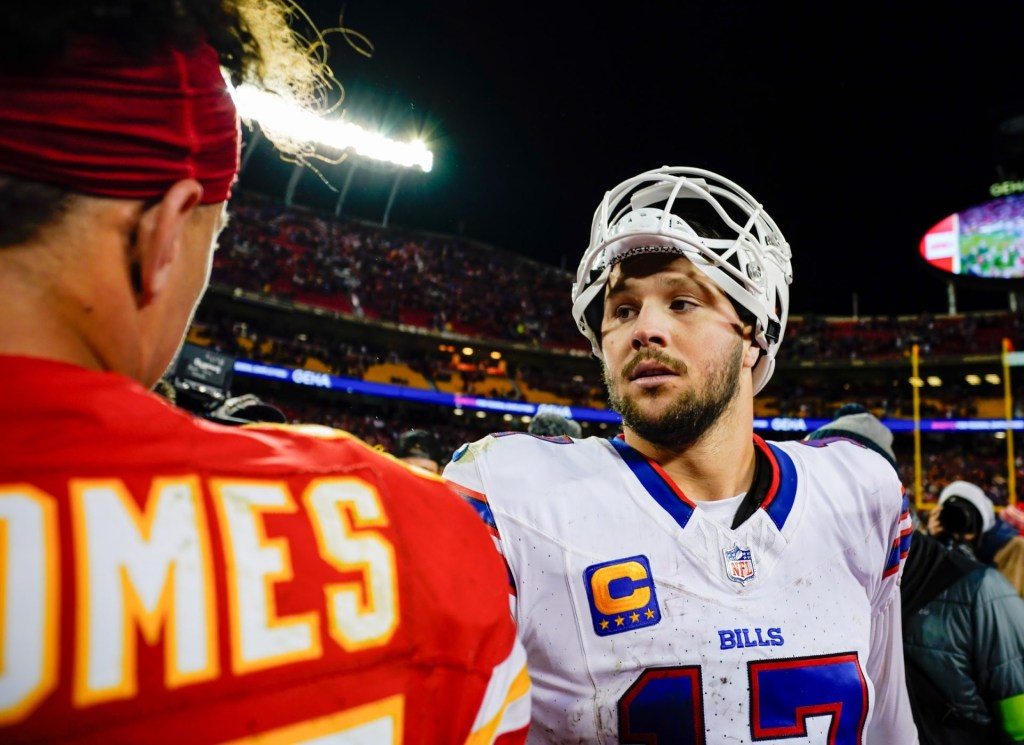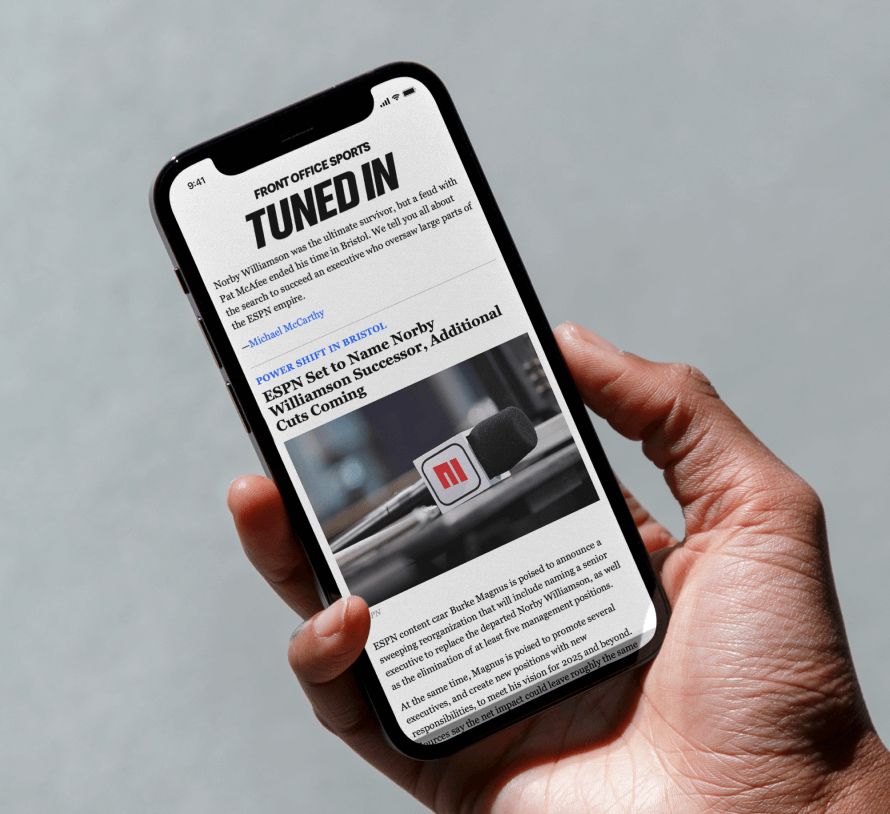MLB Network, NHL Network, and Amazon Prime Video sportscaster Adnan Virk has long been enamored with movies, and his book Cinephile, adapted from his long-running podcast, is slated to be released Aug. 26. Preordered copies will include a special section on what it was like to work for Vince McMahon at WWE.
Front Office Sports caught up with Virk to talk about how he landed interviews with A-listers like Robert De Niro, Margot Robbie, and Kevin Hart, as well as his thoughts on how hockey could grow in the United States, his public exit from ESPN in 2019, and whether he wants to continue his Cinephile pod.
Front Office Sports: In the Cinephile book, you’ve landed interviews with people like Robert De Niro, Margot Robbie, and Kevin Hart. Your background obviously is in sports. How do you land these A-list actors and actresses?
Adnan Virk: It’s an amazing journey for me, and you’re right, I’m very fortunate—I’ve always had two interests: sports and movies. To be able to do both has been quietly remarkable.
So, the way that Cinephile first began was I was working at ESPN. My buddy Dan Stanczyk and I were talking about doing a podcast. At the time, I was filling in on lots of ESPN Radio shows and I wasn’t able to land my own. I thought, Maybe I’ll just do a podcast. What if I do a movie pod?
So we ended up just launching it. Thank God, my buddy Pete Gianesini, who was running ESPN Radio at the time, liked it and gave it a platform. I’d appear on Mike & Mike or with Ryen Russillo and promote the pod.
We had guest bookers at ESPN. You use those four letters, and that’s able to bring in that kind of talent. Robert De Niro was promoting Hands of Stone, a boxing drama. Margot Robbie was promoting I, Tonya, the Tonya Harding biopic. Kevin Hart is a huge sports fan and avid ESPN fan. I was able to use the ESPN arm to get those kinds of interviews. It really worked out beneficial for both sides.
FOS: What was the most stunning thing that’s ever come out of an interview for you with a movie figure?
AV: Two things, one was with Billy Bob Thornton, who’s one of my favorite actors. I told my 17-year-old son he could pick out any movie to watch from my whole collection. Out of all the great films—Raging Bull, Taxi Driver, etcetera—he picks Deadpool. My favorite joke from the movie is when one character is virtually unintelligible, and Ryan Reynolds says, “Sorry, can you say that again? It’s been a while since I’ve seen Sling Blade.”
Sling Blade is one of my favorite movies. It’s of course a great indie sensation. It’s a story about a slow-witted guy and his adopted son. It’s this great Southern folklore; it feels like a story out of Faulkner. So when I interviewed Thornton, I’m telling him about how much I loved the movie.
He starts to say, “I don’t believe I’ve ever said this before publicly …” and I go, “Well, this has to be good …”
He told me that when they were shooting it, he didn’t realize how dire the situation with the film company [TSG Pictures] was in. “The company we were working for was broke,” Thornton said. “I didn’t know at the time how precarious the situation was. I assumed we had some money. But the company was, like, bankrupt. We literally had no money. If I had known that, there’s no way I could have gotten through the day. The movie almost didn’t happen.”
I had never heard that before, and the fact that he said it to me was really cool.
The other crazy thing that happened was with Robert De Niro. After the interview—he was good; Bob is famously taciturn, but he respected how much of a fan I am of him—he turned to me and said, “Pakistan?” In the interview, I had said to him that my favorite movie was Taxi Driver, even though I was born in 1978 and it came out in 1976. It was set in New York City; I grew up in Canada of Pakistani origin.
Bob remembered that and told me there was a great article I should read about the Hindu Kush, this tribe that lives in Pakistan. I’m like, “Uh-huh …” And he says, “If you’re having trouble finding it, let me know.”
I had to go to the Little League World Series that day, on assignment for my real job at ESPN, so as I’m driving I get an email that says, “From RDN’s office.” I pull over on 80 East, and it was from his assistant: “Hey, Bob, really enjoyed talking to you today. Here’s that article he mentioned about the Hindu Kush.”
I was floored. I’ve interviewed so many A-list celebrities I can’t count, but I can’t remember another time where they were thoughtful enough to say, “Hey, you might be interested in this.” I imagined De Niro in his helicopter making sure that the article got to me. It blew me away.
FOS: You’re at MLB Network and NHL Network. Baseball’s had a booming year by all metrics. The NHL’s lagged a little behind. If [commissioner] Gary Bettman came to you and said, “What are some ways we could increase the interest in hockey in the U.S.?”, what would you tell him?
AV: I hope that call comes at some point. This was a bit of a challenge where you had nontraditional markets in the playoffs. It’s always tough if you’re looking at a playoffs with no Rangers, Flyers, Penguins, Red Wings, Blackhawks. The Original Six really drives the market.
And one of the reasons why I think baseball’s had such a robust season—real simple, it’s because big teams are playing great and they’re in the mix. Dodgers, Yankees, Mets, Cubs. Tigers are not a big market necessarily, but they’ve been around 125 years, and Detroit loves their Tigers. It’s quite simple sometimes that you hope your big teams step up and are able to perform.
The good news is that we are celebrating these young stars. Hockey fans know Sidney Crosby, Alexander Ovechkin, Connor McDavid. There’s these stars coming up that you really hope they understand. Cale Makar on the Avalanche—Jason Demers, on our podcast, said he could be the best defenseman of all time. He might be better than Bobby Orr. People should know Cale Makar! They know him in Denver; he should be a bigger star than he is and be able to transcend that. A lot of that goes into marketing, talk shows, viral videos, social media.
A lot of these players just have no interest in that kind of stuff. They’re Canadian. They don’t care about branding. They just want to play hockey and video games and hang out with their friends and that’s it.
Part of the challenge for Gary is getting these guys out there in the public sphere. The good news is hockey still had a good season, relatively speaking, and the success they had in nontraditional markets is huge. That’s one thing you have to give to Gary. Whoever thought the capital of the hockey universe would be Sunrise, Florida, back-to-back Stanley Cup champions and in the Finals three straight years? They’re a wagon.
The hockey fans watching know how good the sport is—it’s getting everyone else watching that’s the biggest challenge. Why would people watch the 4 Nations, but there’s no carry-over to the regular season?
I’ve found, as a Canadian living in the U.S. for the last 15 years, Americans really love watching Team USA but don’t really care about the sport. Americans think T.J. Oshie is the greatest player ever because he was so great in the Olympics, but in the regular season he isn’t that guy. If you could somehow crack that nut and find all those other people watching 4 Nations, to watch the regular season, that would be unbelievable.
FOS: As you reflect on your exit from ESPN, which was very public, six years later, what’s your perspective with where everything is at right now?
AV: I certainly never forget the date. When Feb. 1 comes around, I’m like, Yep, this is the day I got fired from ESPN. I suppose I never dreamt I’d get a job at ESPN, so as shocking as it was for me to ever work there, it was just as shocking for me to be fired.
As you said, it was certainly a public departure, which is never ideal. But honestly, both personally and career-wise, I’m so grateful for how everything has worked out. I know the cliché is everyone gets a second chance, but that often isn’t the case. I could give you a laundry list of names who I worked with at ESPN, or worked in this business, who rightly or wrongly lose their jobs and are unable to really bounce back.
When I look at the situation, I’m amazed at how things have worked out. We got nominated for the Sports Emmy for Best Studio Show for MLB Tonight. We didn’t win this year. We won last year, but for nine years at ESPN we never got nominated. Now we’ve been nominated four times, one-time winner, obviously I’ve had great success with MLB and NHL Network. Now working with Amazon Prime in Year 2 [with NHL in Canada].
I owe a debt of gratitude to ESPN. It’s been six years, but people still come up to me and say they love watching me there. It’ll last 16 years! Maybe they’ll think it’s me or maybe they’ll think it’s Kevin Negandhi, but regardless I realize that none of this would have happened without ESPN. Those four letters allow you to have longevity.
FOS: Meadowlark has pivoted strategy, and Cinephile was a casualty as part of that. Do you plan on reviving it in some way as a podcast, or is putting it out as a book how you flex your creative juices?
AV: I think it’s the latter. I did it for 8 years, 336 episodes. I think after a certain time, people do become a bit repetitive. My brother’s my greatest fan and advocate, and he’s like, “I think I’ve heard you complain once or twice about superhero movies and how movies aren’t as good as they once were.”
That certainly seeped into it. People ask, “Do you miss the podcast?” and I’m like, “Not really.” I’m so grateful that I don’t have to go watch so much dreck. To be honest, the podcast I love listening to is The Rewatchables. Bill Simmons figured it out—movies were better back in the day.
I, quite honestly, without having to do Cinephile on a weekly basis, I’ve gone back and watched not just movies that I loved as a kid in the ’90s, but a lot of great ’70s movies. Gene Hackman passes away, and I can go and watch Night Moves and Criterion.
When you don’t have to do a weekly podcast, and don’t have to watch weekly movies—I suppose if I could launch The Rewatchables and just steal Bill’s idea, I’d do that and hopefully he wouldn’t sue me.
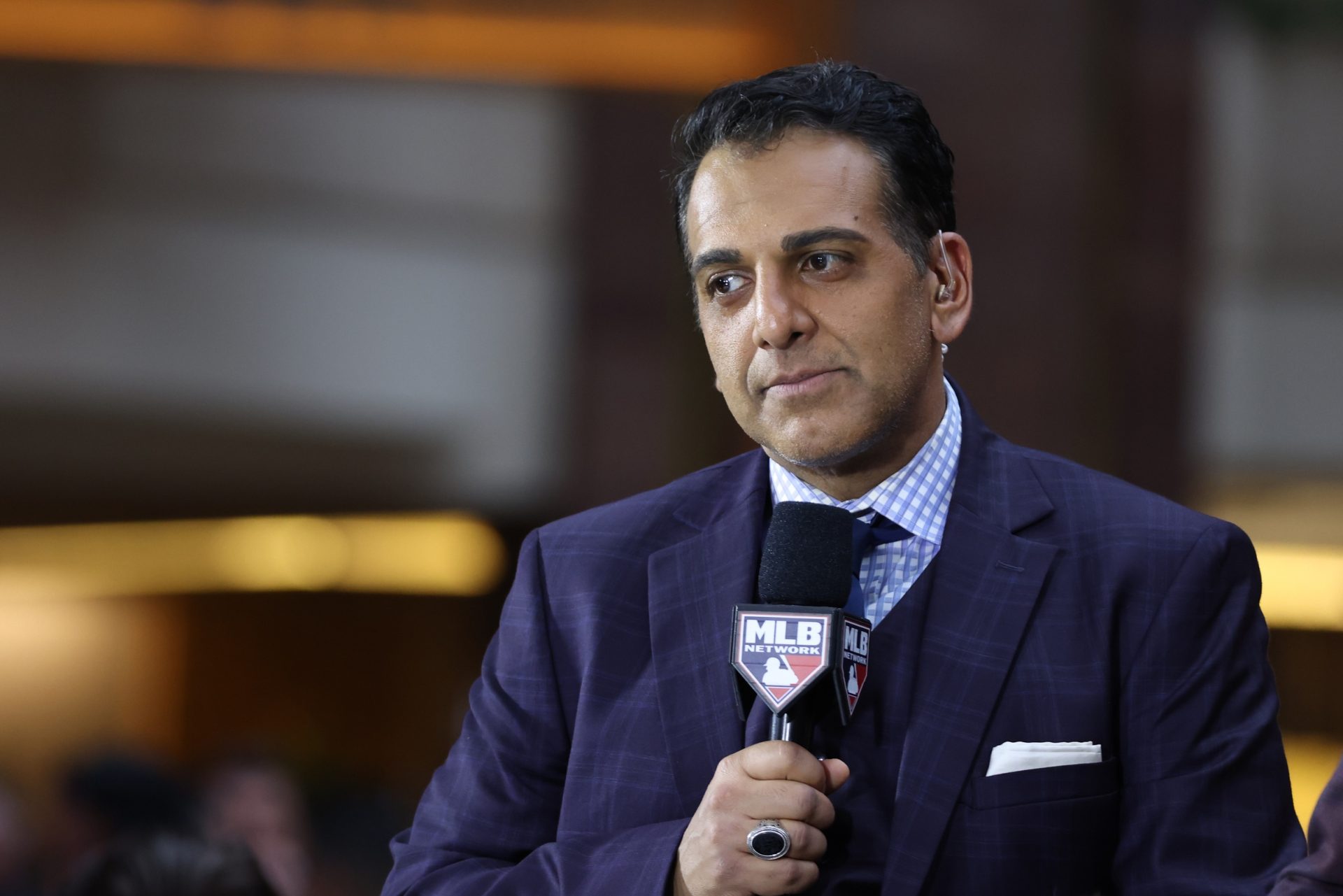
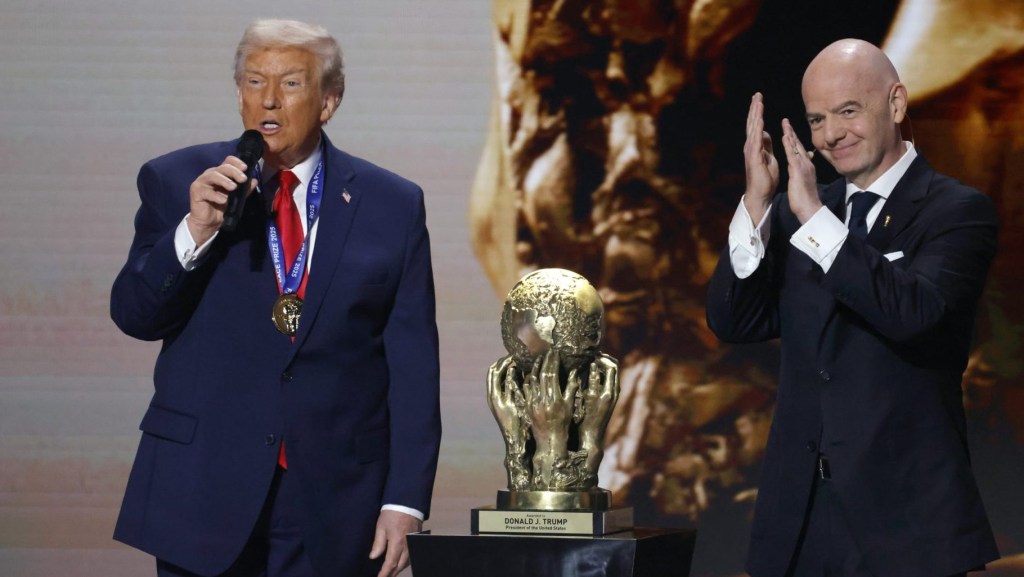

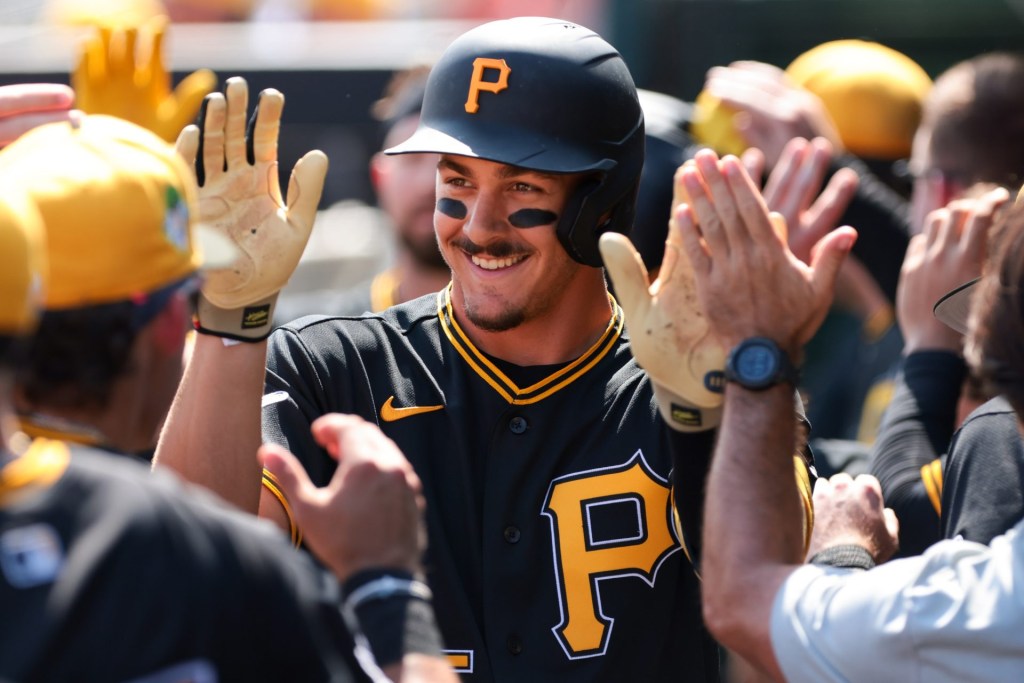
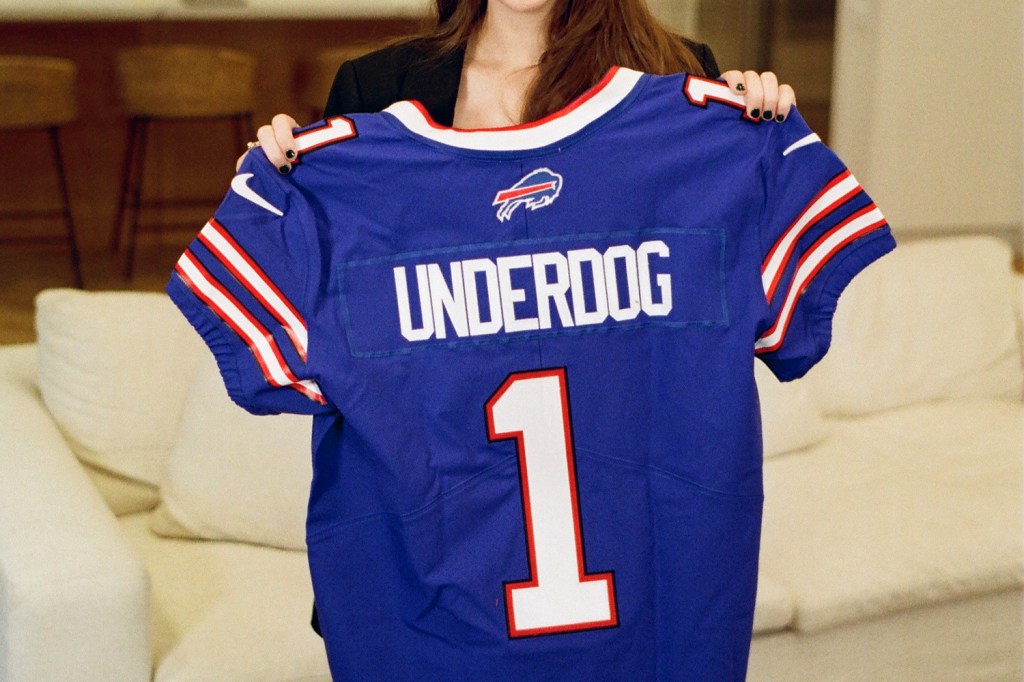

![[Subscription Customers Only] Jun 15, 2025; Seattle, Washington, USA; Botafogo owner John Textor inside the stadium before the match during a group stage match of the 2025 FIFA Club World Cup at Lumen Field.](https://frontofficesports.com/wp-content/uploads/2026/02/USATSI_26465842_168416386_lowres-scaled.jpg?quality=100&w=1024)
![[Subscription Customers Only] Jul 13, 2025; East Rutherford, New Jersey, USA; Chelsea FC midfielder Cole Palmer (10) celebrates winning the final of the 2025 FIFA Club World Cup at MetLife Stadium](https://frontofficesports.com/wp-content/uploads/2026/02/USATSI_26636703-scaled-e1770932227605.jpg?quality=100&w=1024)

